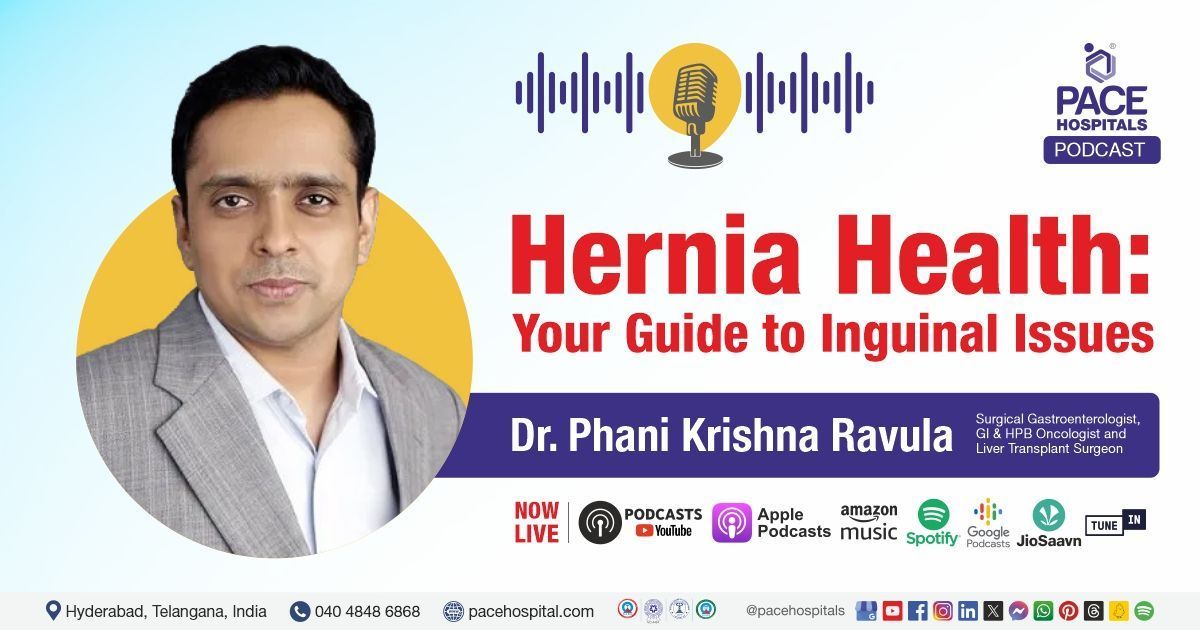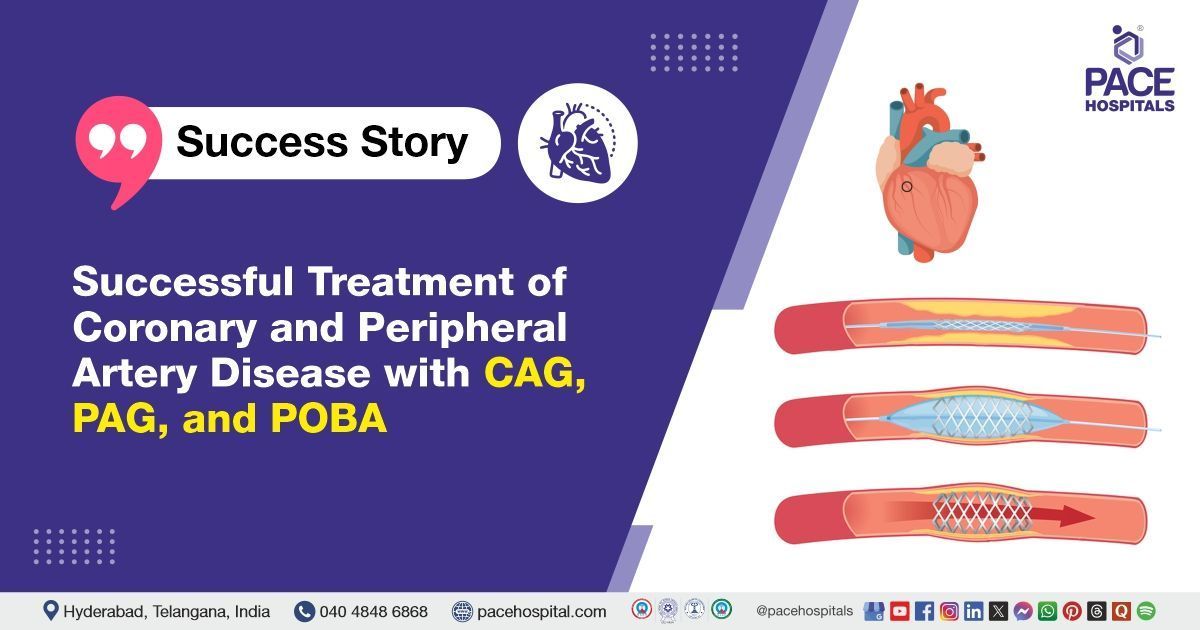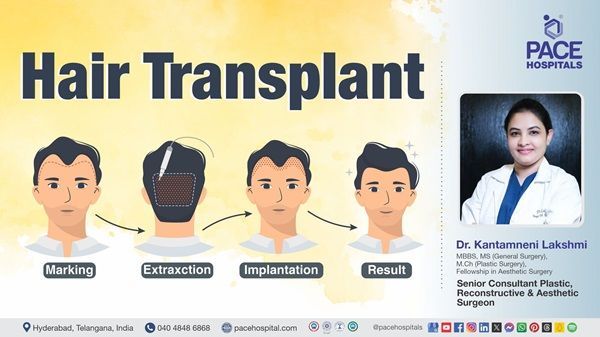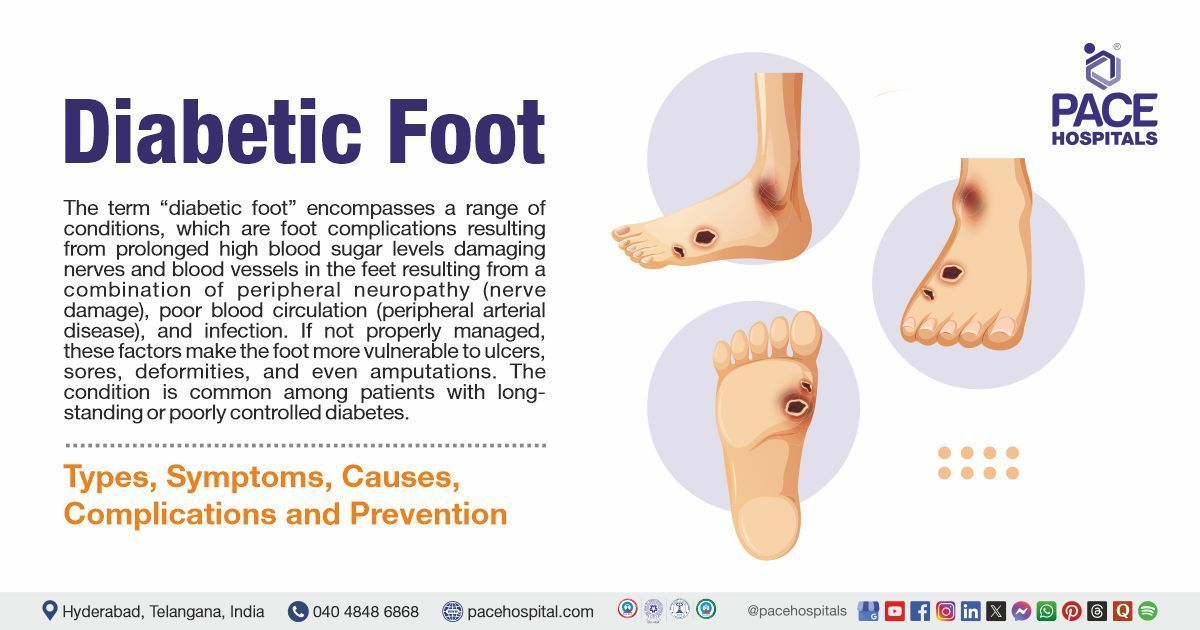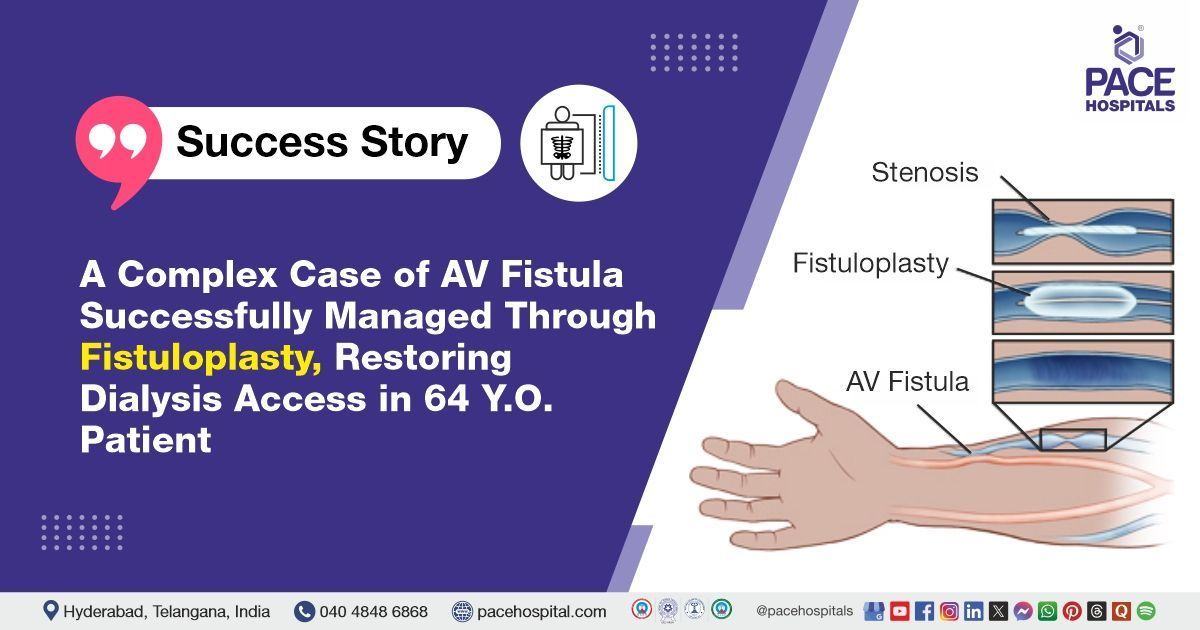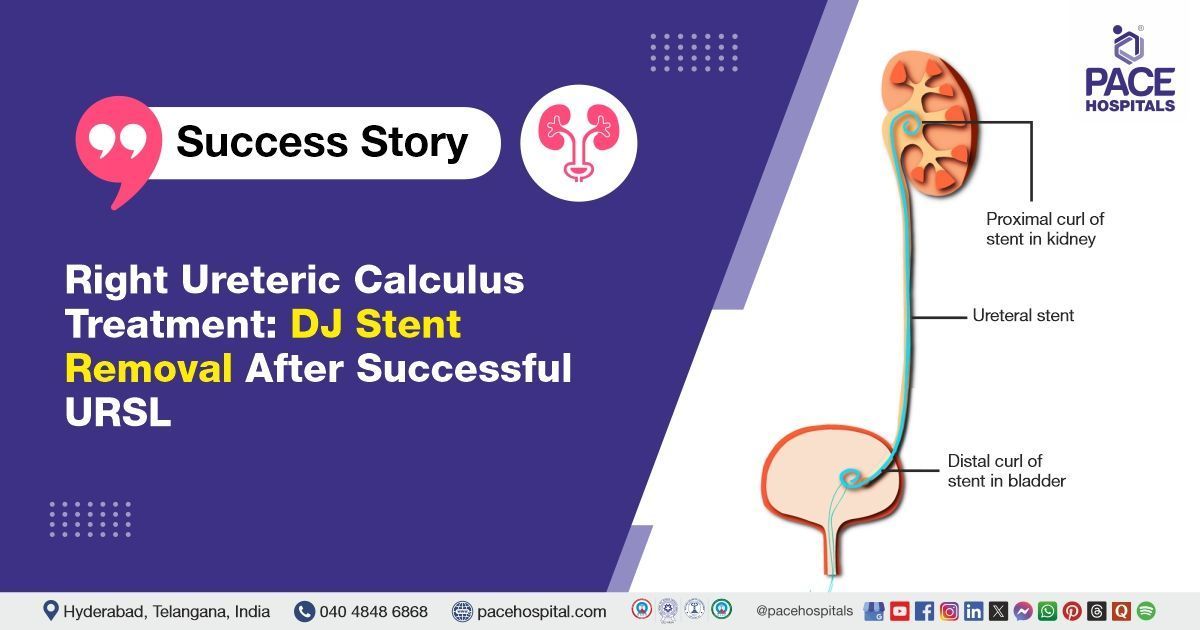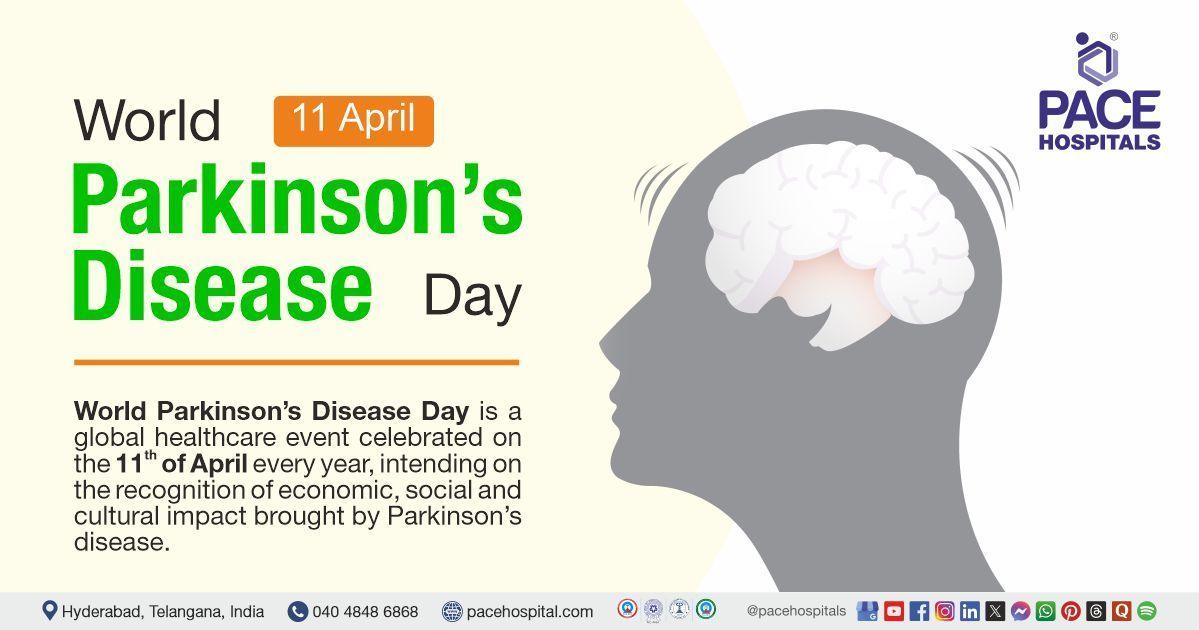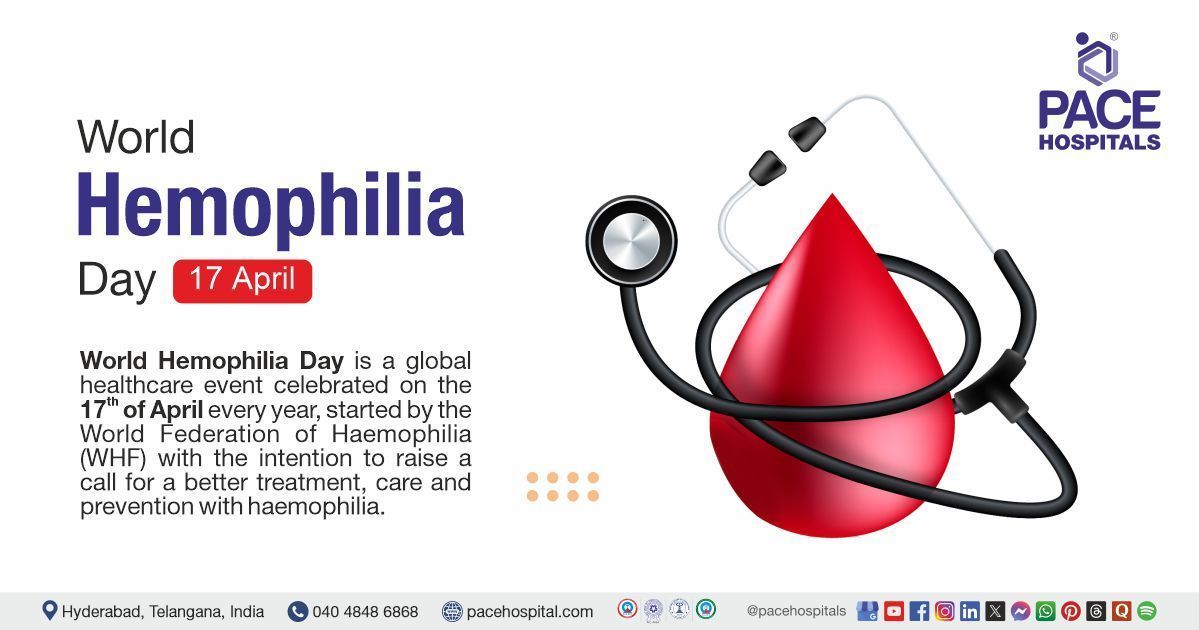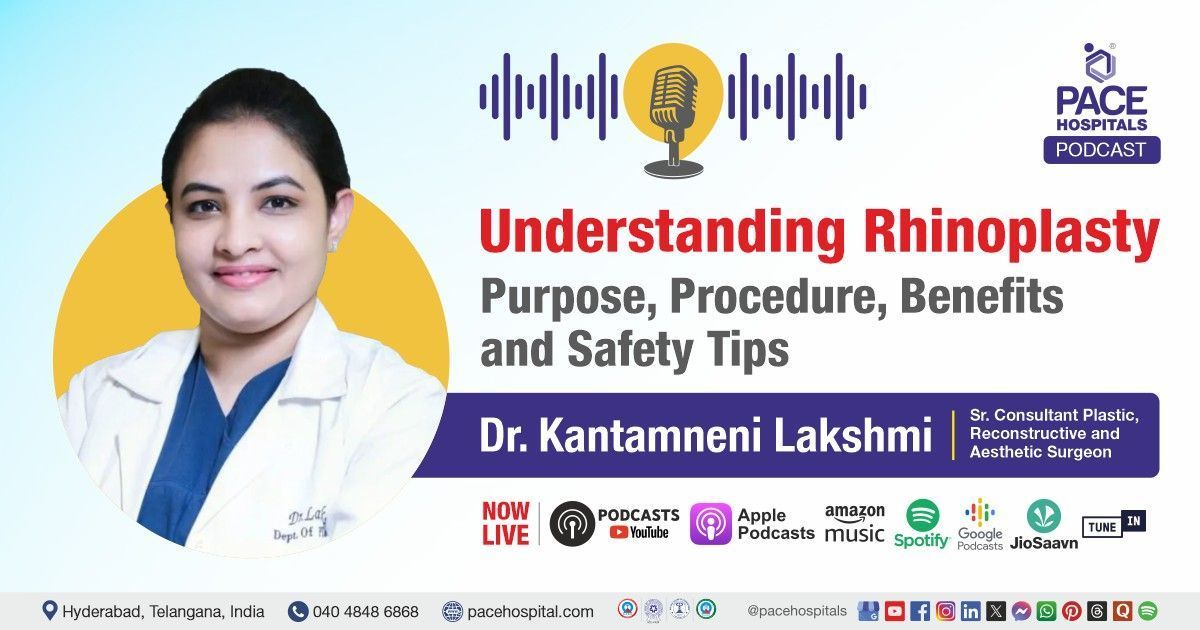Hernia Health: Your Guide to Inguinal Issues
Listen to
An inguinal hernia occurs when tissue, such as part of the intestine, protrudes through a weak spot in the abdominal muscles in the groin area. This condition can result from increased pressure in the abdomen due to heavy lifting, persistent coughing, obesity, or pregnancy.
In today's episode of the inguinal hernia Podcast, we will discuss the causes, symptoms, complications, and treatment options for inguinal hernia.
Join the PACE Hospitals Podcast with Dr. Ravula Phani Krishna - Surgical Gastroenterologist, GI and HPB Oncologist and Liver Transplant Surgeon at PACE Hospitals, Hitech City, Hyderabad, India, to understand the impact of inguinal hernia on daily life and what you can do about it.
Transcript
Host: Hello and Welcome to PACE Hospitals Podcast, today, we're here to discuss about inguinal hernia, a condition that affects millions of people worldwide and can have a significant impact on quality of life.
Joining us today Dr.Ravula Phani Krishna -Surgical Gastroenterologist and Liver Transplant Surgeon having wide experience in treating and managing inguinal hernia. In today's episode, he would like to delve into the world of hernias, specifically focusing on one of the most common types: inguinal hernia.
Dr. Phani Krishna thank you joining us at PACE Hospitals, Hitech City.
Doctor: Thank you for inviting me today I would like to delve into the nuances of inguinal hernias and share insights that can empower our listeners to understand and manage this condition effectively.
Host: Dr. Phani Krishna thank you joining us Let's start with the basics. What exactly is an inguinal hernia?
Doctor: Inguinal hernias, or more commonly which we call them groin hernias or swellings which occur in the groin. The hernia is basically a weakness in your muscle or a defect in your muscle, a gap in your muscle through which the abdominal contents be the abdominal intestines or sometimes the abdominal fat, which you call the omentum or the mesentery. We are supposed to stay inside the abdomen through the hole in the muscles they're coming outside the body, so we call them hernias.
Hernias can be internal hernias, like hiatus hernia, diaphragmatic hernia, or they're external hernias. External hernias are ventral hernias. Ventral hernias, umbilical hernias, when they occur at the umbilical. Ventral hernias when they occur at a previous surgical scar, when they cut your abdomen and it does not heal well.
You can have ventral hernias, but the commonest of these are inguinal hernias, which we call as they occur in the groin and go into present as a groin swelling. Sometimes they can go down into the scrotum as well.
Host: What are some common causes and risk factors for developing an inguinal hernia?
Doctor: The how the in vinyl hernia caused, how the mechanism by which they formed is actually related to your development. When you're a baby inside your mother's womb, your testis and the kidney actually develop together, it's called the urogenital system, but because this testis needs a lower temperature to form sperms, in the course of your development, the testis comes outside your body to the scrotum.
When it coming along, it sort of travels from inside the body to the scrotum, which is outside the body through a area called inguinal canal. So with the testis along with it, it drags the, obviously the spermatic cord and the spermatic vessels. So the synguinal canal in that, in some patients, the peritoneum, the defect which this goes through, it's closed.
Well, in some patients, the defect remains open, it's called patent process vaginalis. So a percentage of about 5% of the general population, they have a patent process vaginalis and in patients who have this patent process of vaginal congenitally, over a period of years, they can form inguinal hernias.
In the inguinal hernias can also form because of plain muscle weakness but why these hernias form? Why does the muscle get weakened? Or is one, like we discussed, because the congenital problem. The other is because of acquired problems. Acquired problems like in patients or smokers, because of heavy smoking, your collagen becomes weak and you form hernias, pains who are chronically increased intra abdominal pressure. Because of repeatedly coughing, the abdominal pressure is increased because of severe constipation, because of enlarged prostate, you are having to strain a lot.
So coughing, constipation, straining, extreme obesity, any condition which can actually increase the intra abdominal pressure, intra abdominal strain can actually lead on to hernias, especially in patients who are prone to hernias by having a patent process vaginalis, which we discussed.
Then, of course, in some patients you can, they can have, in the younger patients, a lot of young patients, they can have hernias without any of these features because of their patent process vaginalis. It just happens that suddenly when you lift a heavy weight or something, they feel like a tear.
So when you lift a heavy weight, a tear can occur in your muscles in the patent process vaginalis and then from that point onwards, you can have an inguinal hernia without any of the risk factors which we discussed before.
Host: What are the common symptoms of inguinal hernia and could you also explain the signs and symptoms in case of the complications?
Doctor: So, the inguinal hernia symptoms are, one is, of course a main problem, common thing is it's a swelling in your groin. So the swelling initially, in the initial days, the swelling comes in the morning or when you're walking and when you lie down, lie down, it disappears. But over a period of time, the swelling moves on from the go, from the groin onto the scrotum. So once, once it becomes a, goes to the scrotum, what was a previously incomplete hernia becomes a complete hernia.
Then initially the hernias are usually reducible, that means either by lying down or by pushing it, you can push the intra abdominal contents back into the abdomen. But beyond a stage the hernias, as they become bigger and they go into the scrotum, they become irreducible, that means the intentional condense come out and they are stuck there.
So the common symptoms, other than the swelling in inguinal hernia, other areas could be a groin pain, so patients can have a dragging pain inside the groin, in the groin, a feeling of insecurity inside the point and sometimes inguinal hernias, if the intestine goes inside the hernias because the attachment of the intestine is stretched, though you have an inguinal hernia, you can sometimes have abdominal pain as well.
These are the common symptoms, sometimes inguinal hernias can have complications, so when an inguinal hernia gets stuck, it's like the neck is very narrow and the contents are very large, so what happens at the neck? The hernias contents can actually get stuck. So this can present as an emergency called irreducible hernia or strangulation, so irreducible hernia is when the contents are stuck and once the contents are stuck and their blood supply is compressed like strangulation, the blood supply of the neck, of the hernia, the contents are compressed, the blood supply to the contents, like the intestine or something, the blood supply gets cut off and then it can present like an emergency with severe pain and redness and feature of intestinal obstruction.
Let's like abdominal can get distended, you can have continuous vomitings. You may not pause motion for a couple of days, but something like this occurs. It's a very emergency, serious, critical scenario because the intestine can become gangrenous and then the patient can go into sepsis and die. So if such a thing occurs or when a patient with a groin hernia has sudden onset, severe vomiting, or the swelling becomes very tense and tender and red, they have to rush to a doctor.
Host: Are there specific symptoms or factors that indicate the necessity of treatment for an inguinal hernia?
Doctor: So not all inguinal hernias need treatment. See, like I said, there are, in the younger group of patients you go more often, you get indirect inguinal hernias, which is related to your development. So through the inguinal canal, the contents come out because of the patent process, vaginalis in this kind of patients usually have a very narrow neck and it's and over a period of time, inguinal hernia, once it comes over years, it can only become bigger.
There's no medicine, no ayurvedic, homeopathic, allopathic treatment, which can actually cure inguinal hernia because basically it's a hole in your muscles, a mechanical problem. It requires a mechanical solution, so in patients who are young with inguinal hernia, treatment is mandatory because even if you're.
If you have no symptoms now, as time goes by, you will continue to have pain and pain and other complications like irreducibility, then strangulation all can occur. So any young patient with an inguinal hernia needs to get operated. The other group of hernias, called direct hernias. The hernia doesn't occur through the inguinal canal, but itoccurs in the groin medial to the inguinal canal.
So, this is more of because of loss of toe, lack of tone of muscles and muscle weakness. So in direct hernias, in very elderly patients, patients who are 70 plus like that, if you have small direct hernias causing no pain and no symptoms, treatment is not mandatory because these direct hernias, there's no risk of strangulation.
Yes, they may grow bigger over a period of time, so if, if in younger patients and older patients, even if you have a direct hernia, you should get it operated because over a period of time,,the hernia will only get bigger and bigger, but if you have very old patients and if you have no symptoms, you don't need to get treated for that.
So small direct hernias in very elderly, 75, 70 to 75 plus patients, if they're asymptomatic and direct hernias, or the doctor tells you that you have a direct hernia and the size of the hernia is small, you don't need surgery for it.
Host: How are inguinal hernias treated and what are the surgical options available?
Doctor: So, like we discussed, all, most patients with inguinal hernia require treatment, be it all indirect hernias, all symptomatic hernias, all younger patients with hernia, only selected patients with small direct hernias in the very elderly, I think those kind of patients, we can just follow up and then, of course, there's sometimes patients who have no symptoms, but the ultrasound shows the small hernia, occult hernia. We would generally avoid treatment and just keep them under follow up and do the surgery only if they're symptomatic. Once you've decided the treatment for inguinal hernia.
Host: what is the ideal treatment for inguinal hernia?
Doctor: One thing we are clear over the years, initially they used to try to repair the inguinal hernia just by suturing the native tissues together. Now, that has not been very successful. Now, the best way to treat an inguinal hernia is tension free mesh repair that means we bring the tissues together in a tension free fashion and reinforce it with a mesh because the native tissues have failed. Here the hernia has occurred.
So you need to reinforce with the mesh that mesh forms that matrix for a tissue growth and this is a permanent mesh. The mesh remains forever in your body because it forms a framework for on which new tissues grow, and it creates a new strong layer to prevent a recurrence. So this can be done by obviously open or laparoscopic hernia hernia repair. Open has been there for the past 50, 60 years. It is still a good surgery, but now the standard of care is laparoscopic repair.For inguinal hernias, there are two types of laparoscopic repairs, a tap repair and a tap repair both are equally good. Depends on the expertise of the surgeon and what he's comfortable with both are equally good for both types of hernias. The advantage of laparoscopic hernia repair is basically we do it through a keyhole surgery very tiny scars, five millimeter scars are placed even if you have hernias on both sides.So because I told you, it's a congenital problem.
For indirect inguinal hernia, patent process vaginalis, several patients can have bilateral hernias. So with the advantage of lap is the small incisions, five millimeter incisions. Even if you have hernias on both sides, you can do it through the same, same incision. The chance of postoperative recovery is very quick.
There's not much of pain the patient can get back to work within one or two days after surgery. The chance of chronic neuropathic pains is very less because the, when you put open mesh, open meshes, the nerves can get entrapped in that, and then you can have chronic pain after the surgery.
The chance of that is very less with the laparoscopic repair and cosmosis wise is a big advantage in some particular hernias, like very large direct hernias and large indirect hernias.
Laparoscopic in that specific area laparoscopic repair has an advantage over open repair because we'll be using a very much bigger mesh we are able to place into from the abdomen inside in lab, that same side of big mesh we cannot place in open surgery.
Host: Thank you, Dr Dr. Phani Krishna, for sharing crucial information regarding the inguinal hernia to our listeners.
Doctor: I hope this information can be valuable for the listeners and it’s essential to be aware of the signs and symptoms of inguinal hernias, particularly if you have risk factors such as a family history or engage in activities that increase abdominal pressure. Seeking prompt medical evaluation and treatment can help prevent complications and improve outcomes.
Host: If any of you have any further questions regarding Barrett's Esophagus please don’t hesitate to consult a gastroenterologist and remember early diagnosis and intervention can help prevent complications and improve outcomes.
We will see you soon on PACE Hospitals Podcast with another episode until next time take care. Thank you.
Request an appointment
Fill in the appointment form or call us instantly to book a confirmed appointment with our super specialist at 04048486868
Appointment request - health articles
Thank you for contacting us. We will get back to you as soon as possible. Kindly save these contact details in your contacts to receive calls and messages:-
Appointment Desk: 04048486868
Whatsapp: 8977889778
Regards,
Pace Hospitals
Hitech City and Madinaguda
Hyderabad, Telangana, India.
Oops, there was an error sending your message. Please try again later. We will get back to you as soon as possible. Kindly save these contact details in your contacts to receive calls and messages:-
Appointment Desk: 04048486868
Whatsapp: 8977889778
Regards,
Pace Hospitals
Hitech City and Madinaguda
Hyderabad, Telangana, India.
Our Locations – Find the Best Hospital Near You
Metro Pillar Number C1772, Beside Avasa Hotel, Hitech City Road, Near HITEC City Metro Station, Hyderabad, Telangana, India.
Mythri Nagar, Beside South India Shopping Mall, Hafeezpet, Madeenaguda, Hyderabad, Telangana, India.
040 4848 6868
Payment in advance for treatment at PACE Hospitals, Hyderabad, Telangana, India (Pay in INR ₹)
For Bank Transfer:-
- Bank Name: HDFC
Company Name: Pace Hospitals
A/c No.50200028705218
IFSC Code: HDFC0000545 - Bank Name: STATE BANK OF INDIA
Company Name: Pace Hospitals
A/c No.62206858997
IFSC Code: SBIN0020299
Scan QR Code by Any Payment App (GPay, Paytm, Phonepe, BHIM, Bank Apps, Amazon, Airtel, Truecaller, Idea, Whatsapp etc).

CONTACT US
Call: +914048486868
WhatsApp: +918977889778
Email: info@pacehospitals.in
FOLLOW US
SUBSCRIBE
Subscribe to our newsletter and stay updated with the latest health information.
Subscribe to PACE Hospitals' Public Newsletter
Thank you for subscribing to PACE Hospitals' Newsletter. Stay updated with the latest health information.
Oops, there was an error. Please try again submitting your details.
ABOUT US
QUICK LINKS
Disclaimer
General information on healthcare issues is made available by PACE Hospitals through this website (www.pacehospital.com), as well as its other websites and branded social media pages. The text, videos, illustrations, photographs, quoted information, and other materials found on these websites (here by collectively referred to as "Content") are offered for informational purposes only and is neither exhaustive nor complete. Prior to forming a decision in regard to your health, consult your doctor or any another healthcare professional. PACE Hospitals does not have an obligation to update or modify the "Content" or to explain or resolve any inconsistencies therein.
The "Content" from the website of PACE Hospitals or from its branded social media pages might include any adult explicit "Content" which is deemed exclusively medical or health-related and not otherwise. Publishing material or making references to specific sources, such as to any particular therapies, goods, drugs, practises, doctors, nurses, other healthcare professionals, diagnoses or procedures is done purely for informational purposes and does not reflect any endorsement by PACE Hospitals – your trusted hospital near me.

